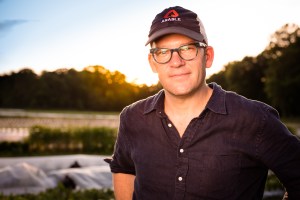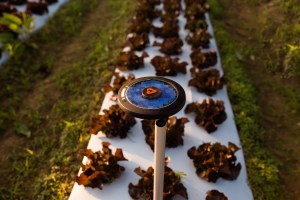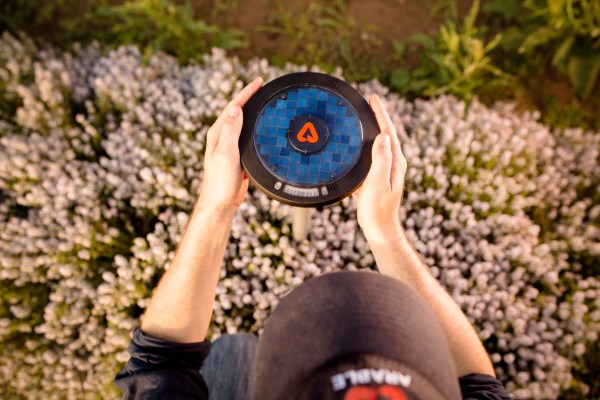A Princeton, New Jersey startup called Arable Labs Inc. recently unveiled a professional-grade crop and weather sensor that’s solar powered, rugged and was designed by Fred Bould, the creative talent behind the Nest thermostat, smoke and carbon monoxide detector, as well as Fitbit, GoPro and Roku products.
The Pulsepod, which looks something like the head of a small drum or a translucent small frisbee, contains sensing technology including: a six-band spectrometer, 4-way net radiometer, and acoustic rain gauge. It is also solar-powered so it doesn’t need to be plugged in or require frequent battery replacement.
Its sensors enable each Pulsepod to constantly monitor crop growth, or regrowth of grass in a pasture, as well as rainfall, crop water demand, light and heat levels and even the color of berries on the bush, kale leaves, or grapes on the vine, which is important in determining harvest-readiness of the crops.
Arable CEO and founder Adam Wolf said, “Data quality is profound to us. This measures more observation streams than any other embedded device in the world outside of medicine, and is sending data to the cloud where it can be accessed and analyzed in real time.”
The idea for Arable sprang from the founder’s academic research work around forecasting maize growth in Kenya, Zambia and other African markets facing severe drought, along with economic impacts and food scarcity resulting from it, he said.

Arable CEO and founder Adam Wolf.
Growers are already using Arable’s hardware and cloud-based software to figure out harvest timing and the potential yield of what they’re growing.
Early adopters of the company’s software and sensors include: Valley Irrigation, makers of center pivot sprinklers and other equipment for commercial farms; Yara International, the global fertilizer manufacturer based in Norway; Francis Ford Coppola Winery; Treasury Wine Estates; berry growers Driscoll’s; and Blue Marble Microinsurance.
“Timing and yield are very consequential in this business,” the CEO noted. “It takes tremendous coordination of people and resources to make a great bottle of wine, or get organic strawberries onto the shelves of a national grocery chain.”
Designer Fred Bould, who is an equity investor in Arable, said he and a design team from his eponymous design services firm, spent long hours in the field observing farmers, forecasters and other agronomists to understand exactly how they might handle Arable’s technology during their everyday work flow be it in a vineyard, arbors, or a field of lettuce.
“Designing something like the Nest, you don’t have to worry about people throwing it into the back of a truck or dropping it from a post five feet above an almond tree onto packed gravel below,” Bould said.
Bould Design and Arable engineers had to consider how the Pulsepod would work around machinery that’s already in use on farms, too.
Bould recalled, “We watched people harvesting strawberries, and saw equipment that passes over rows of plants. We saw picking wagons where people walk behind them, and put strawberries into containers on them. We saw Mad Max-like machines that chop things down that are sticking a few feet above a vine. And we asked ourselves where can we position this so it won’t get disintegrated into 1,000 parts.”
The Arable also had to be easy to set up and durable enough to be working in 3 years in the same position in the field, Bould said.
The final device includes a port which allows users to connect it to other hardware, for example, cameras or auxiliary sensors.
Wolf said longer-term, the Arable could be utilized beyond agriculture, for example, to help cities manage urban flooding, water quality or fires. But for now the company remains focused on the needs of food farmers.
In addition to its hardware, Arable offers a cloud-based app and developer tools including an API to help farmers and business that work with them to do custom forecasting, modeling and analysis of the data they gather on the ground.
The company aims to reduce food waste around volatile, perishable commodities, and ultimately to make farming predictable, Wolf said.
Arable has raise $1.5 million in angel funding and $4 million in non-dilutive grant funding from the National Science Foundation for the research that gave rise to the Pulsepod.
